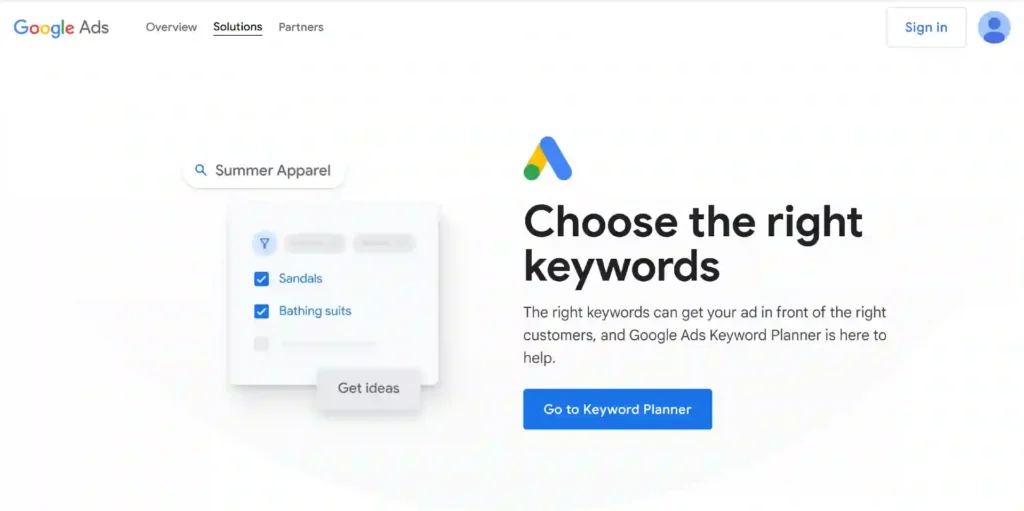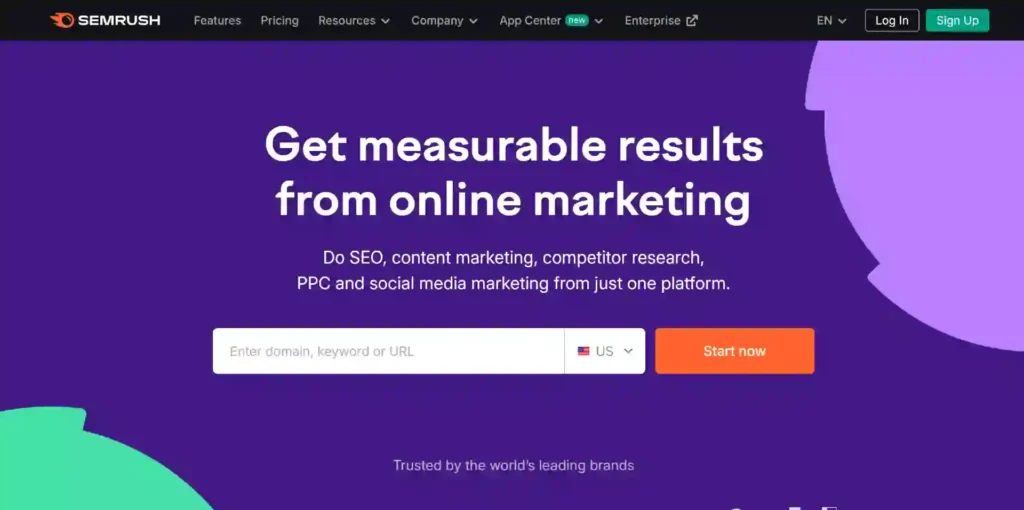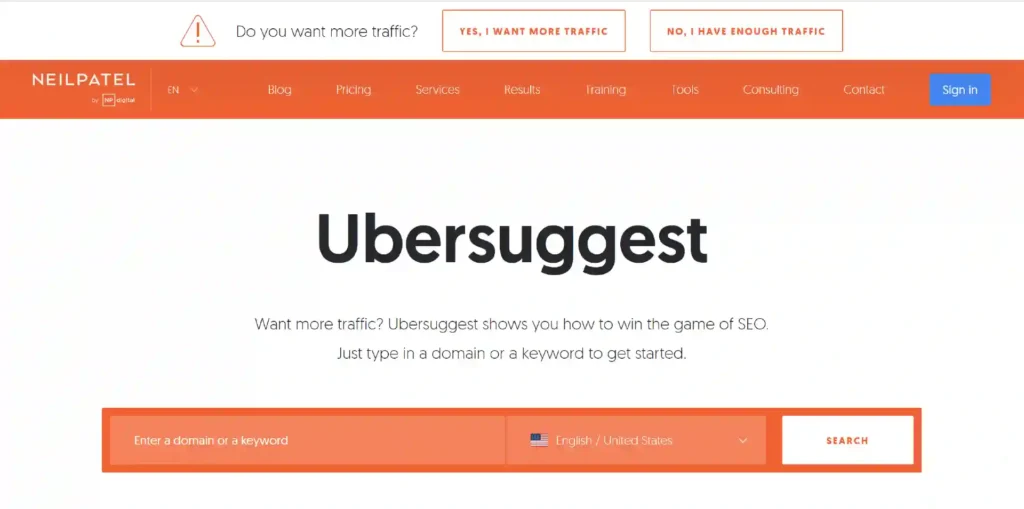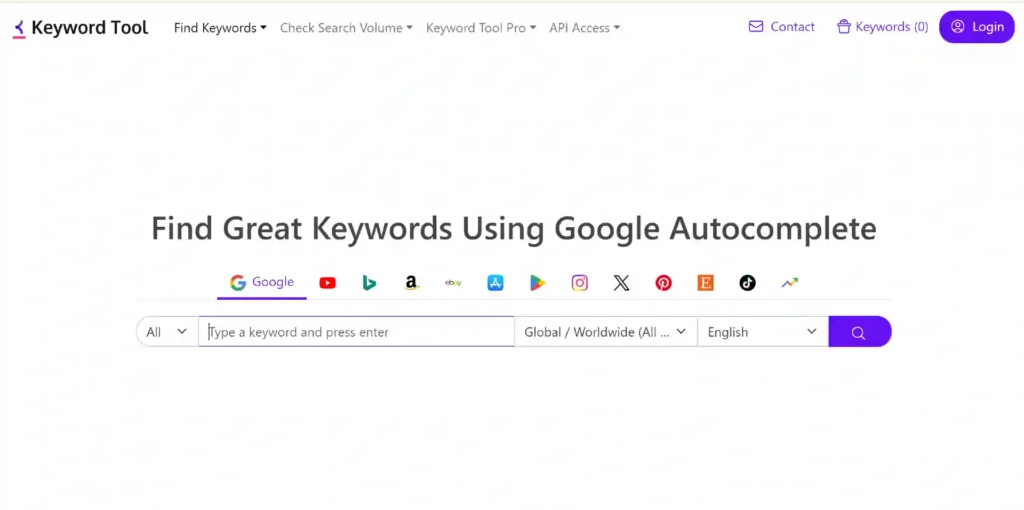How to make a keyword research , Since the Google search algorithm ranks different sites based on more than 200 parameters. To increase your website’s chances of standing out, undertake complete, high-quality keyword research. Finding the correct keywords that are relevant to your target audience will allow you to create and implement a keyword strategy, improving your pages’ search engine ranks and creating continuous organic traffic.
With this beginner’s guide to keyword research, you’ll learn how to do keyword research for a better SEO, allowing your organization to maximize SEO performance (and return).
What is Keyword Research?
Keyword research is the process of finding and analyzing keyword phrases that people use in search engines for relevant results. This allows you to better understand what your target audience is looking for and how to adjust your content to their needs.
Keyword research allows you to identify the most relevant terms for driving traffic to your site and improving your search engine results for better ranking and revenue.

Why is Keyword Research Important?
Keyword research is important for several listed reasons:
- Understanding User Intent: It helps you understand what your audience is searching for and why basically keyword are the demand of the users.
- Content Optimization: By targeting the right keywords, you can create content that is more likely to rank well in search engines like (Google, Bing etc).
- Competitive Analysis: It allows you to see what keywords your competitors are targeting and how you can differentiate yourself from them easy way is to copy their sitemap and ask Chatgpt to fetch the top keywords site is ranking on.
- Improved ROI: Effective keyword research can lead to higher conversion rates and better return on investment for your marketing efforts.
Also Read more About : How to Create a WordPress Website
Elements of Keyword Research
When performing keyword research, there are many important aspects to consider:
- Search Volume: The number of times a keyword is searched for in a given period of time.
- Keyword Difficulty: A measure of how hard it is to rank for a particular keyword on SRPs.
- Relevance: How closely a keyword matches the content and purpose of your website also try to add the relative keywords in your content in order to get more conversations.
- User Intent: Understanding what the user is looking to have with their search query or question.
- Long-Tail Keywords: Longer, more specific keyword phrases that often have lower search volume but higher conversion rates especially a new site must work on Long Tail Keywords to build trust on search engines at beginning.
How to Research Keywords for Your SEO Strategy
Here’s a step-by-step guide to researching keywords for your SEO strategy:
- Brainstorm Seed Keywords: Start by brainstorming a list of seed keywords related to your business or niche you are working on.
- Use Keyword Research Tools: Utilize tools like Google Keyword Planner, Ahrefs, or SEMrush to expand your list and fetch data on search volume and keyword difficulty basis .
- Analyze Competitors: Look at the keywords your competitors are ranking for and identify opportunities to target similar or related keywords by using their sitemap.
- Group Keywords: Organize your keywords into groups based on themes or topics to help structure your content strategy.
- Prioritize Keywords: Prioritize your keywords based on search volume, difficulty, and relevance to your business goals.
How to Find and Choose Keywords for Your Website
Finding and choosing the right keywords for your website involves several steps:
- Identify Your Target Audience: Understand who your audience is and what they are searching for.
- Use Keyword Tools: Tools like Google Keyword Planner, Ahrefs, and SEMrush can help you find relevant keywords.
- Analyze Search Intent: find the intent behind the keywords to ensure they align with your content or not dont work on irrelevant keywords.
- Check Competitor Keywords: See what keywords your competitors are using and identify gaps you can fill to rank better on content basis.
- Select Long-Tail Keywords: Focus on long-tail keywords that are more specific and have less competition.
- Evaluate Keyword Metrics: Look at search volume, keyword difficulty, and relevance to choose the best keywords.
Best Keywords for SEO
The best keywords for SEO are those that:
- Have High Search Volume: Keywords that are frequently searched for by your target audience.
- Are Relevant: Keywords that closely match the content and purpose of your website.
- Have Low Competition: Keywords that are not overly competitive, making it easier to rank for them.
- Match User Intent: Keywords that align with what the user is looking to achieve with their search query.
- Include Long-Tail Keywords: Longer, more specific keyword phrases that often have higher conversion rates.
Keyword Generator
| Keyword Tool | Features | Price |
|---|---|---|
| Google Keyword Planner | Keyword ideas, search volume, competition | Free |
| Ahrefs | Keyword research, competitor analysis | Paid |
| SEMrush | Keyword suggestions, search volume, analysis | Paid |
| Ubersuggest | Keyword ideas, search volume, competition | Free/Paid |
| Keyword Tool | Keyword suggestions, autocomplete data | Free/Paid |
A keyword generator is a tool that helps you find keywords for your content. Such applications rely on algorithms to provide keyword suggestions based on your input and provide information on search traffic, competition, and other metrics. Some dominant keyword generators are:
Google Keyword Planner
What is the Google Keyword Planner? Google’s Keyword Tool is a free tool available to Ppc users that suggests demand. The tool is also useful for people who skip using Adwords.

Ahrefs
Ahrefs is a Singapore-based multinational startup that creates online SEO tools and educational materials for marketing professionals. They focus on creating meaningful, user-friendly products and strive to stay ahead of the game, with a diverse team dedicated to technology and SEO.

SEMrush
Semrush is a powerful tool suite that improves online exposure and offers marketing knowledge via services such as SEO, PPC, SMM, keyword research, public relations, content marketing, and campaign management.

Ubersuggest
Ubersuggest is a free Chrome extension and strong SEO tool that displays keyword monthly search volume, CPC, and competition data. The Ubersuggest plugin provides relevant facts for a keyword query on Google, YouTube, Amazon and other websites.

Keyword Tool
Keyword Tool is a free online keyword research tool that makes use of Google Autocomplete to generate hundreds of suitable long-tail keywords for a single subject. Google Autocomplete is a function of Google Search. The goal is to speed up users’ Google searches.

Also Check : How to Write an AdSense Friendly Article
FAQs
1. What is the best tool for keyword research?
2. How often should I conduct keyword research?
3. What are long-tail keywords?
4. Can I use the same keywords across many pages?
5. How can I determine whether a keyword is overly competitive?
Conclusion
You’ve studied the basic principles of finding SEO keywords and how to use them on your website. If you’re ready to get started, explore keywords now and rank better on SRPs